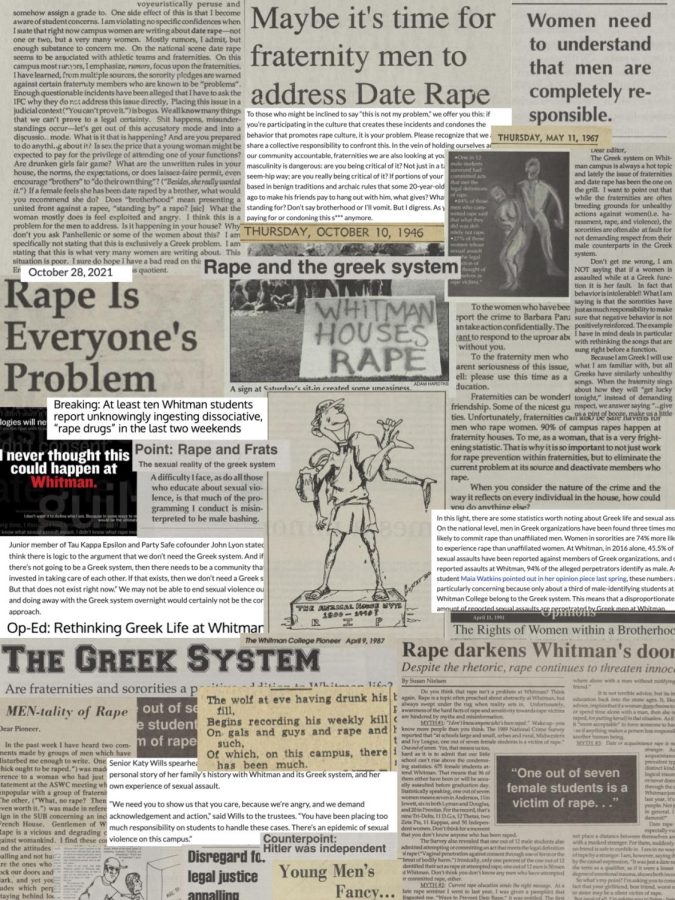Editor,
An experimental printing management system for the on-campus computers will be implemented this semester. Students used to have to pay for printing until 1994 and now, after churning out about 4,000,000 free pages annually for 14 years, Whitman is heading towards the golden middle way of limited free-of-charge printouts.
Each student will be allocated a semester allowance of 60 dollars, which, at five cents a page, makes 1,200 pages per semester. Technology Services and the Conservation Committee is actively seeking student feedback about the changes. Two town hall style meetings are planned for later in the semester to gather input from the college community. The goal is to establish a system which encourages conservation, effectively reduces the use of the printers and at the same time allows for responsible printing without reaching the free limit.
With the proliferation of electronic classroom materials at Whitman, especially reading assignments through the library E-Reserve system and CLEo, we are currently seeing a massive shift away from textbooks. Students are not spending money in the bookstore anymore, and unless the texts remain as electronic documents, the printers and the printing budget bear the brunt.
Printing is an expensive and resource intensive affair: it requires paper, ink, replacing the equipment regularly, and staff time to keep the system going. WCTS have decided that limits on free-of-charge printing will be an effective way to conserve all those resources.
The Paper Campaign made the same recommendation to President Bridges in 2007, but the tough times have made the proposal more appealing now. From the environmental standpoint, the Paper Campaign estimated that a quota would be the most effective way to reduce paper use on campus and offset the additional costs of purchasing only 100% post-consumer recycled paper for all printing at Whitman.
The Math lab in Olin already has an internal quota system in place, in combination with a print-job release station by the printer. The effort has significantly reduced paper waste there.
Limiting the amount of free printing makes one think twice before printing, thus reducing unnecessary paper copies. Moving away from printing also encourages the exploration of new kinds of learning and teaching.
Pew Research Center announced in December that, for the first time, the Internet has overtaken printed press as the main source of national and international news. Paper based media are seeing a rapid decline in readership and revenue, as is printed scholarly literature. Over the last five years, Penrose Library more than doubled its number of available periodicals to almost 30,000, an increase entirely due to electronic subscriptions.
Whitman faculty are keeping up with the electronic trend. There is a lot of interest in integrating technologies into classroom learning; demand by faculty for “smart classrooms” exceeds supply. Often the adoption of hi-tech gadgets goes well beyond posting PDF documents on-line.
Last semester, Professor of Classics Dana Burgess taught his Concepts of Nature in Greek and Roman Thought course entirely electronically. The weekly short writing assignments were submitted and returned through CLEo, as were the course essays.
Despite being initially unaccustomed to embedding comments, Professor Burgess discovered that providing electronic feedback made for more plentiful and better quality annotations. He believes that this “greener” way of handling written work may have actually led to more effective instruction.
The shift away from paper is already affecting Whitman. In addition to expanded availability of various electronic resources and the opportunities for enhanced learning, paper use has also been reduced slightly. In the last two years we have not used all of the paper that was bought in the large yearly paper purchases, and small savings are already accruing.
This semester is a trial period, and glitches and technical problems will occur. These will have to be addressed, but implementing a printing quota will make Whitman more efficient and further the existing conservation efforts.
– Karlis Rokpelnis ’09
Karlis Rokpelnis is the campus sustainability coordinator and a member of Campus Greens’ Paper Campaign.



